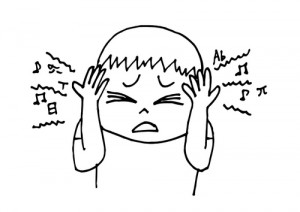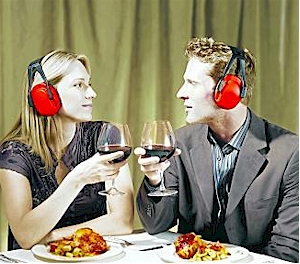A restaurant is supposed to make you feel at home, but a restaurant is not your home. Some diners will inevitably feel uncomfortable with the ambience of a restaurant but how much right does each person have to impose his or her preferences on the room? You think it’s too hot or too cold, too bright, too noisy or drafty, or too close to the bathroom. Another guest is bothering you. Every night, we do our best to create an atmosphere where design, lighting, music, and thermostat work in concert in service of the guest’s comfort; but it isn’t a perfect science. Should you complain, management will do its best to help you feel at ease but the music we play or the temperature of the room are things that affect everyone. Voice your displeasure if you must but don’t expect everything to be altered to suit your personal preference.
Playing one brand of music that everyone eating will enjoy at a volume suitable for everyone is impossible. We’re sorry that you don’t think Led Zeppelin pairs well with risotto—but we do. If a restaurant annoys you with the loud music they play, dine somewhere quieter. No one’s forcing you to suffer through it. But getting all grumpy-pants or throwing a hissy fit at the table isn’t proving anything to anyone. You just end up looking like a big baby. If we turn up the air conditioning because you wore a three-piece corduroy suit to dinner somebody in a summer dress will complain about the chill. Any accommodations we make will invariably involve some compromise. The guest’s needs should come first—we understand that—but your needs may soon subsume the needs of others. Without rules, restaurants descend into anarchy. If your goal is to enjoy yourself, it is unwise to become an Enemy of the State.



